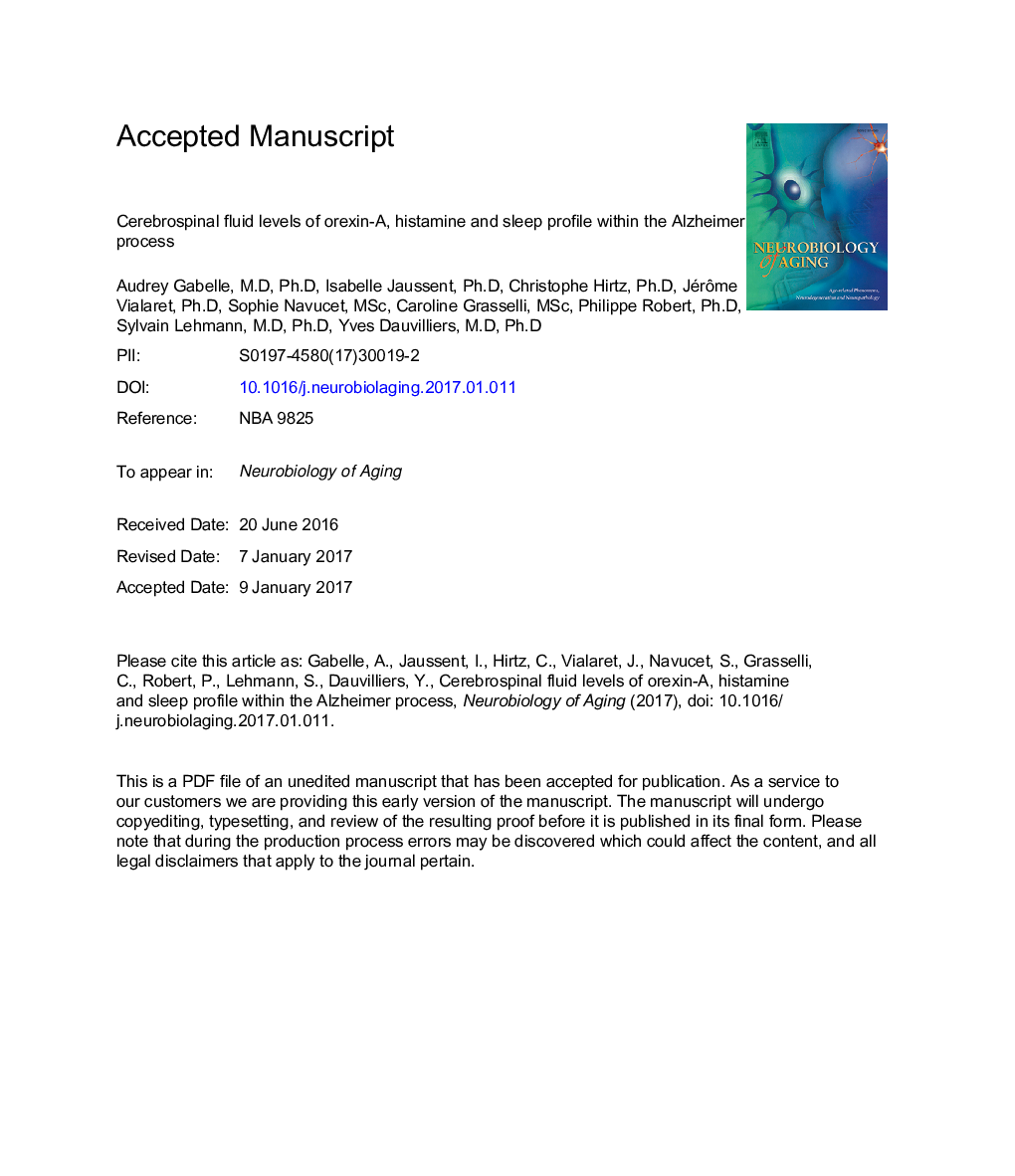| Article ID | Journal | Published Year | Pages | File Type |
|---|---|---|---|---|
| 4932608 | Neurobiology of Aging | 2017 | 33 Pages |
Abstract
To better understand how sleep/wake dysregulation affects Alzheimer's disease (AD), we compared the cerebrospinal fluid (CSF) orexin and histamine/tele-methylhistamine (HA/t-MHA) levels of 82 patients (41 probable-AD-high level of evidence, 41 mild cognitive impairment MCI-due-to-AD), 24 other neurologic disorders (OND) and 24 controls. We determined the relationships between these biomarkers, the CSF AD biomarkers concentrations, and the clinical sleep profile. CSF orexin-A but not HA/t-MHA levels were higher in MCI and AD than OND and controls. CSF orexin-A is correlated to CSF amyloid-β42in MCI and AD, independently of age, gender, MMSE, total-tau/phosphorylated-tau, HA or sleep parameters. Nighttime sleep duration was longer in MCI and AD patients than controls. In MCI, nighttime sleep duration negatively correlated with CSF amyloid-β42 and MMSE. To conclude, CSF orexin-A but not HA/t-HMA was upregulated in AD and correlated with amyloid-β42 level. Our data suggested a change in the sleep-wake pattern at an early stage of the disease that needs further investigation to deeply explain the mechanistic interplay between sleep and Alzheimer.
Related Topics
Life Sciences
Biochemistry, Genetics and Molecular Biology
Ageing
Authors
Audrey Gabelle, Isabelle Jaussent, Christophe Hirtz, Jérôme Vialaret, Sophie Navucet, Caroline Grasselli, Philippe Robert, Sylvain Lehmann, Yves Dauvilliers,
